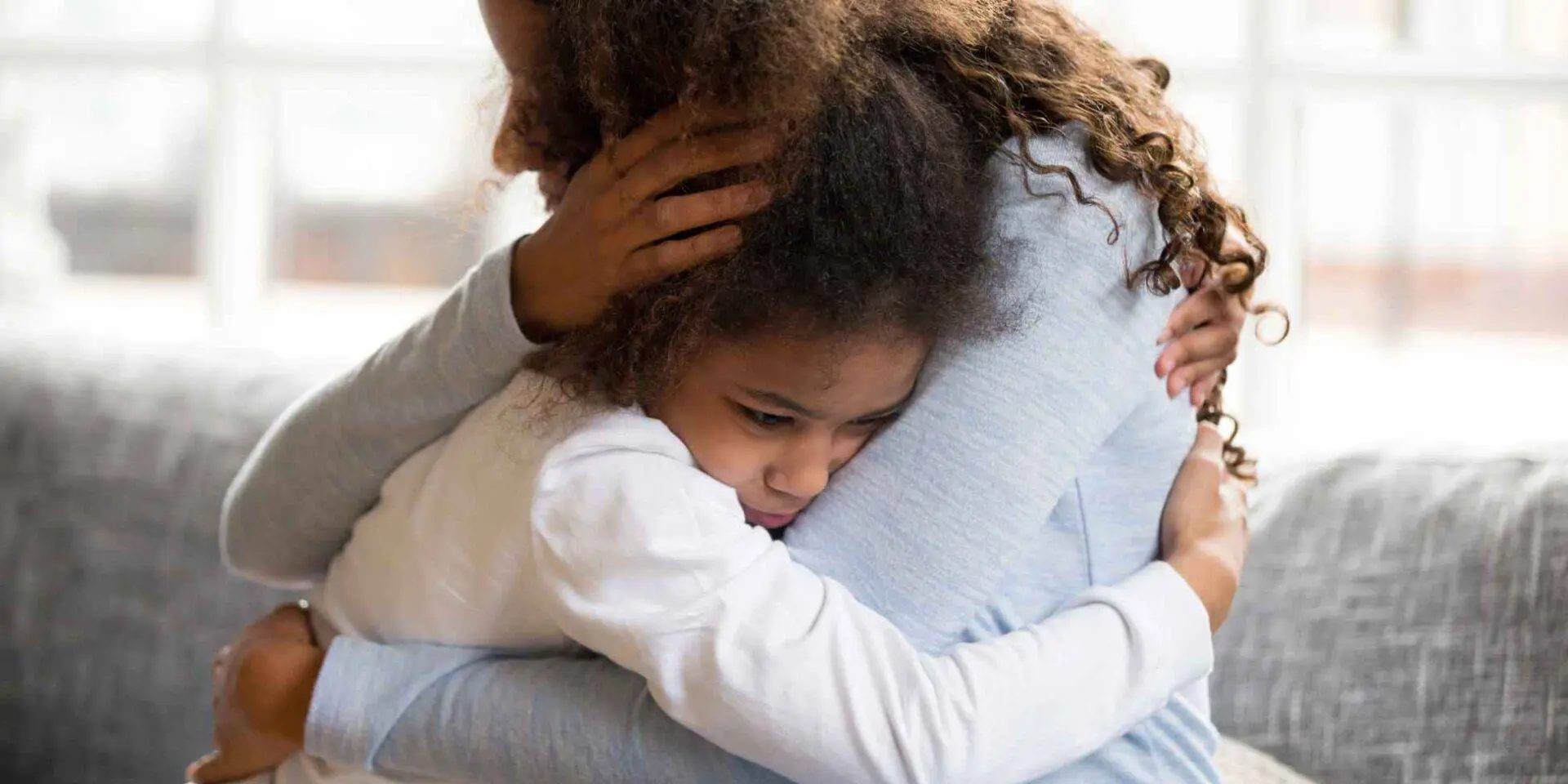Separation anxiety is the feeling of extreme fear or distress when someone is separated from an emotional attachment, such as a parent, a loved one, or a place they feel safe, like their home. This is quite common in grieving children or young people.
They might be worried about going to school, become clingy and follow you everywhere or be unable to sleep alone in their own bed. This can be difficult to manage, so here is some advice on why grieving children might develop separation anxiety and how to help them.
Why do some children develop separation anxiety after a bereavement?
When a child experiences the death of someone, they can suddenly become aware of the mortality of themselves and those around them. This can be a scary realisation which can result in new and worrying behaviours, including developing what’s known as ‘separation anxiety.’ This is especially common when the child has experienced the death of a caregiver.
An attachment to parents or carers is really important for a child’s development. This creates a ‘safe base’ for them to explore the world whilst feeling secure. However, when someone important dies, this safe base can be broken, and separation anxiety may creep in. This is really common and completely understandable, especially for younger children. Following a bereavement, a child may experience some of the following:
- Fear of a parent or loved one dying too
- Fear of dying themselves
- Worrying that they won’t wake up if they go to sleep
- Fear of being away from their loved ones
- Generalised fear and anxiety about going to school
- Physical symptoms such as headaches, stomach aches, or nausea when separation occurs
- Nightmares about separation
How do I manage my child’s separation anxiety?
These can be challenging to manage, but there are steps you can take to help reassure your child and improve the anxiety over time. If you are concerned that your child is experiencing separation anxiety it may be useful to try the following:
Listen carefully
Be willing to really listen to your child’s fears and try not to downplay how they are feeling. Feeling validated and heard can go a long way in helping reduce the anxiety they are experiencing.
Introduce separation
It’s important not to shy away from being separated from your child, despite the anxiety it may cause. Doing this slowly and in a controlled manner where your child knows when you will be going, where you will be going and when you will be back, will help to improve anxiety as you prove the fear wrong by returning.
To do this effectively, it is important that you do this at a time when your child feels settled and safe and that you return exactly when you promised to. Reassurance is a big part of this too, continue to remind them that they are safe and you will see them soon.
Keep a routine
The more regular you are with your routines as a family, the more familiar this will feel to your child and in turn decrease their anxiety. Keeping them involved in plans for the day allows them some element of control which can be useful. Developing your own unique way of saying goodbye, like pinkie promise, kisses, special hugs etc, can also be beneficial too.
Continued below…
Don’t make a scene
Drawing attention to the separation can make it seem like a bigger event than it is. Remain calm, say your goodbyes and leave. Try not to put it off, if you can help it.
Give your child choices
Feeling out of control is a big part of anxiety, so giving your child options may help them to feel that they have some control over the situation and therefore reduce the anxiety they are experiencing.
Praise all progress
Acknowledging even the smallest of accomplishments will help to build confidence in your child that they can manage without you sometimes.
Reassure them
It is important to remember that we cannot promise children that we won’t die. However, you can reassure them that most people live until old age, and that you hope too as well by looking after yourself in the meantime. This is a gentler way to answer the dreaded question of “what if you die too?”
Looking after yourself when coping with separation anxiety in children
Having a child attached to you for all hours of the day can be exhausting, especially if you are experiencing your own grief at the same time. Looking after yourself is so important and making time to do so will help more than you can imagine. Here are some tips for you too!
Get your own support
Whether that be a trusted friend, family member or a professional, having another adult to offload to is invaluable. You will be best placed to support your child when you are feeling supported yourself. If at any point you feel unable to manage your emotions, speak to your GP.
Take a break and get some fresh air
Try not to forget the importance of taking a break. You are only human and cannot work at full capacity all the time. If you get a spare few minutes, try taking a walk and do some deep breaths, reminding yourself that you’re doing an amazing job.
Get some rest
Sleeping might not be particularly easy right now, but it is still incredibly important. Take whatever steps you feel might help to improve the length and quality of your sleep. Feeling tired only adds to your stress.
Things may feel overwhelming right now and that is really common. Try to take things one day at a time and celebrate the small victories.
Getting professional grief support
Our bereavement support workers are available to offer information, guidance and support, right away. Reach out on 08088 020 021 or use our live chat (click the blue ‘chat’ button on the bottom right of your screen) between 8am and 8pm, Monday to Friday. You can also email us on ask@winstonswish.org and we’ll get back to you within two working days.
For out of hours mental health support, text WW to 85258 to speak with someone from our trusted partner, Shout. For urgent support in a crisis, please call 999.

You may also like

Activities for grieving children
Download our free activities to help grieving children express their feelings and remember someone who has died.

Information and advice
Advice and resources to support children and young people, including on bereavement by suicide, homicide and serious illness.


